Discover War Studies
War Studies

War Studies
Author: Department of War Studies
Subscribed: 1,839Played: 33,064Subscribe
Share
© All rights reserved
Description
Welcome to the War Studies podcast. We bring you world-leading research from the School of Security Studies at King’s College London, the largest community of scholars in the world dedicated to the study of all aspects of security, defence and international relations. We aim to explore the complex realm of conflict and uncover the challenges at the heart of navigating world affairs and diplomatic relations, because we believe the study of war is fundamental to understanding the world we live in and the world we want to live in.
If you’ve enjoyed this podcast, please rate and review us on your preferred podcast provider – it really helps us reach more listeners.
The School of Security Studies harnesses the depth and breadth of expertise across War Studies and Defence Studies to produce world-leading research and teaching on issues of global security that develops new empirical knowledge, employs innovative theory, and addresses vital policy issues.
Visit our website: https://www.kcl.ac.uk/security-studies
Sign up to our mailing list: https://kcl.us15.list-manage.com/subscribe?u=cc0521a63c9b286223dea9d18&id=730233761d
DISCLAIMER: Any information, statements or opinions contained in these podcasts are those of the individual speakers. They do not represent the opinions of the Department of War Studies or King's College London.
If you’ve enjoyed this podcast, please rate and review us on your preferred podcast provider – it really helps us reach more listeners.
The School of Security Studies harnesses the depth and breadth of expertise across War Studies and Defence Studies to produce world-leading research and teaching on issues of global security that develops new empirical knowledge, employs innovative theory, and addresses vital policy issues.
Visit our website: https://www.kcl.ac.uk/security-studies
Sign up to our mailing list: https://kcl.us15.list-manage.com/subscribe?u=cc0521a63c9b286223dea9d18&id=730233761d
DISCLAIMER: Any information, statements or opinions contained in these podcasts are those of the individual speakers. They do not represent the opinions of the Department of War Studies or King's College London.
179 Episodes
Reverse
In this episode, Dr Pablo de Orellana, Senior Lecturer in International Relations, is joined by journalist and Emmy-nominated producer Nora Neus to discuss her book "24 Hours at the Capitol: An Oral History of the January 6th Insurrection".
Drawing on hundreds of interviews and primary sources, Neus reconstructs the “minute-by-minute” experience of 6 January 2021 – from elected officials to frontline staff – and argues the attack cannot be understood as a one-off event, but as the culmination of a longer movement that gathered momentum after Charlottesville and accelerated through the pandemic era.
Their conversation explores how far-right coalitions form and fragment; the role of social media platforms and online ecosystems in mobilisation; and the political power of mythic nationalism – from “1776” iconography to competing claims about American exceptionalism. They also examine the wider relationship between ethnic nationalism and religion, as well as the implications for future episodes of political instability.
This episode introduces The Helsinki Brief, a podcast mini-series on Finnish intelligence and security. Hosted by Dr Paul McGarr of King’s College London, the discussion features Hannamiina Tanninen, an analyst at Finnish Security and Intelligence Service (SUPO), about the role and structure of civil intelligence in Finland.
The discussion covers SUPO’s legal mandate, core functions such as counterterrorism, counterespionage, cyber intelligence and security vetting, and its cooperation with domestic and international partners. The episode also addresses key security threats, including terrorism, cyber activity and state-based intelligence operations, as well as public trust, recruitment and oversight within Finland’s intelligence system.
In this episode, Professor Roddy Brett, Professor of Peace and Conflict Studies and Director of the Global Insecurities Centre at the University of Bristol, joins Dr Nafees Hamid, Co-PI of the XCEPT research programme, to discuss his new book, ‘Victim-Centred Peacemaking: Colombia's Santos-FARC-EP Peace Process’.
Professor Brett reveals how the victims’ delegations changed the dynamics of the Santos-FARC-EP peace process, transforming victim-perpetrator relations and ultimately shaping the final agreement, which was signed in 2016. At a time when the number of civilian casualties in armed conflict is rising around the world, the Santos-FARC example offers valuable insights into how to effectively involve victims in peacemaking.
Professor Brett’s book is available from Bristol University Press:
https://bristoluniversitypress.co.uk/victim-centred-peacemaking
This episode has been produced as part of the Cross-Border Conflict Evidence, Policy and Trends (XCEPT) programme, which is funded by UK International Development from the UK government; however, the views expressed do not necessarily reflect the UK government’s official policies.
XCEPT aims to understand the drivers of violent and peaceful behaviour in conflict-affected populations – and to find solutions that support peace.
Find out more at www.xcept-research.org
In this episode, Dr Gary Buck, author of A Risk Too Far: A Psychological Autopsy of the Planning for Arnhem, joins Dr Huw Dylan to explore the human factors behind one of WWII’s most daring operations. Drawing on his expertise in operational psychology, Dr Buck reveals how stress, ambition and personality shaped the decisions of commanders like Montgomery, Browning and Urquhart during Operation Market Garden.
Through this psychological lens, the episode uncovers how bias, rivalry and pressure influenced Allied command—and how the mind can be as decisive a battlefield as any fought on land or air.
In this episode, Dr Tim Stevens, co-editor of the Research Handbook on Cyberwarfare, explores the evolving realities of cyber warfare and its growing impact on global security. He discusses the challenges of defining cyberwarfare, tracing its development from early military computing to today’s complex cyber operations across a distinct digital battlespace.
The conversation examines the key players in cyberwarfare—from states to non-state actors and cybercriminal groups—their motivations, tactics, and the broader consequences of their actions on critical infrastructure and civilian life. Dr Stevens also addresses the difficulties of international regulation in cyberspace and the ethical dilemmas that arise when cyber operations blur the lines between military and civilian targets.
In this episode, Professor Andrew Lambert FKC, Laughton Professor of Naval History, Geoff Browell, Head of Heritage Collections, and Angus Hui, curator of the D-Day Hong Kong, explore the untold story of 24 Chinese naval officers who trained with the Royal Navy during World War II and took part in the D-Day landings.
Angus discusses the fascinating discovery of a personal diary from one of these officers, providing a rare, first-hand account of their training, military operations and experiences.
The episode also delves into the broader historical context of China’s naval rebuilding efforts during the war, the officers' contributions and their post-war journeys. This conversation sheds light on an important yet often overlooked chapter of naval history and World War II.
You can find more information about the exhibition here:
https://www.kcl.ac.uk/events/lost-found-in-hong-kong-the-unsung-chinese-heroes-at-d-day
In this episode, Professor Tim Willasey-Wilsey, Visiting Professor at the Department of War Studies, joins Dr Huw Dylan, Reader in Intelligence Studies and International Security, to delve into Tim’s new book, The Spy and the Devil: The Untold Story of the MI6 Agent Who Penetrated Hitler’s Inner Circle. They discuss the remarkable story of Baron William de Ropp—MI6’s key source inside Nazi Germany in the 1930s.
Tim shares how de Ropp, a little-known Baltic German aristocrat, became responsible for over 70% of British intelligence reporting on Nazi Germany before World War II. Fluent in four languages and able to move through elite German circles undetected, de Ropp developed close ties with senior Nazis like Alfred Rosenberg—and even secured face time with Adolf Hitler himself.
Tim and Huw explore how de Ropp’s intelligence work marked a turning point for MI6, transforming it from a low-level, tactical service into a strategic intelligence agency. They also explore the risks of improvisational espionage, the moral ambiguities of cultivating Nazi contacts, and how the agency learned—often painfully—how to run a new kind of agent.
In this episode, investigative journalists Andrei Soldatov and Irina Borogan—both Visiting Fellows at the Department of War Studies—join Dr Daniela Richterová, Senior Lecturer in Intelligence Studies, to discuss their new book, Our Dear Friends in Moscow: The Inside Story of a Broken Generation.
The book reflects on a generation of young Russians who came of age in the hopeful yet turbulent 1990s. In the wake of the Soviet Union’s collapse, many embraced the promise of reform and openness. But economic turmoil, war and terrorism soon reshaped the country, as the state moved steadily toward authoritarianism.
Blending personal narrative with political analysis, Andrei and Irina explore how a once close-knit group of friends—united by shared ideals—fractured under the pressure of Putin’s rise. Some aligned with the regime; others, like the authors, chose exile. Drawing on two decades of reporting, they examine the rise of Russia’s security state and the moral decisions that shaped their generation.
In this episode, Dr Tiffany Fairey, Senior Research Fellow at the Department of War Studies, and Dr Pamina Firchow, Associate Professor at Brandeis University, join Professor Rachel Kerr, Professor of War and Society at the Department of War Studies, to delve into their groundbreaking research that uses photography and community-defined indicators to rethink peace from the ground up.
To coincide with the large-scale Imaging Peace street exhibition on The Strand and drawing on their work in Colombia, they explore how participatory methods like photovoice and Everyday Peace Indicators empower communities to shape their own visions of peace—challenging traditional research models and transforming peacebuilding practices in the process.
Websites:
Imaging Peace: https://imagingpeace.org/
Everyday Peace Indicators: https://www.everydaypeaceindicators.org/
Peace Photography: A Guide: https://imagingpeace.org/index.php/peace-photography-guide/
Articles:
Photography and everyday peacebuilding. Examining the impact of photographing everyday peace in Colombia:
https://bit.ly/43XGE4F
Images and indicators: mixing participatory methods to build inclusive rigour:
https://bit.ly/4kIMs9i
How did communist Czechoslovakia become a hub for Cold War terrorists like Carlos the Jackal and Abu Daoud? And what can today’s intelligence professionals learn from its uneasy covert alliances?
In this episode, Dr Daniela Richterova, Senior Lecturer in Intelligence Studies at the Department of War Studies, joins Dorothea Gioe, Visiting Research Fellow at the King’s Centre for the Study of Intelligence, to discuss her new book Watching the Jackals. Drawing on newly declassified archives, she reveals how Czechoslovakia’s State Security Service (StB) navigated its complex, and often contradictory, ties with radical non-state actors—and how those Cold War entanglements still echo in today’s security landscape.
How did Cold War intelligence operations shape postcolonial India’s domestic politics and international alignments? Why did Western agencies prioritise relationships with Indian counterparts while publicly decrying non-alignment? And what can today’s policymakers learn from the legacies of covert cooperation in the Global South?
In this episode, Dr Paul McGarr, Lecturer in Intelligence Studies in the Department of War Studies, discusses his latest book Spying in South Asia. He explores the complex, often contradictory intelligence relationships between post-independence India and agencies such as MI5, MI6 and the CIA. From clandestine support to Cold War defections, and from covert propaganda campaigns to today's intelligence partnerships, Dr McGarr traces how secrecy, sovereignty and strategic necessity shaped India’s place in global affairs—and continues to inform the geopolitics of the Indo-Pacific today.
In December 2024, the Assad regime in Syria was overthrown. Today, Ahmed al-Sharaa is acting as the interim president of Syria, at the head of a new transitional government.
What will the future look like for Syria under its new leader? Will the coalition of rebel factions be able to work together to build a stable future for Syrians?
Dr Nafees Hamid, Dr Rahaf Aldoughli, Nils Mallock and Broderick McDonald discuss their research surveying and interviewing Syrian rebel fighters both before and after the fall of Assad, sharing insights into the motivations and values of Syria’s new rulers.
*This episode was recorded before the announcement of the new government. Follow ICSR_Centre on X to stay up to date with this research.
This research is being undertaken as part of a project called XCEPT, which is funded by UK International Development from the UK government; however, the views expressed do not necessarily reflect the UK government’s official policies.
XCEPT aims to understand the drivers of violent and peaceful behaviour in conflict-affected populations – and to find solutions that support peace. Find out more about XCEPT at xcept-research.org.
In 2016, the Colombian government signed a historic peace agreement with guerilla group the Revolutionary Armed Forces of Colombia, also known as FARC. The agreement brought an end to 52 years of war, but today, eight years after the agreement was ratified, Colombia is still not at peace.
In this episode, Dr Nafees Hamid and Dr Andrés Casas discuss the motivations of guerilla group members in Colombia, public attitudes towards the 2016 peace agreement, and how behavioural science can facilitate peacebuilding efforts.
This research is being undertaken as part of a project called XCEPT, which is funded by UK International Development from the UK government; however, the views expressed do not necessarily reflect the UK government’s official policies.
XCEPT aims to understand the drivers of violent and peaceful behaviour in conflict-affected populations – and to find solutions that support peace. Find out more about XCEPT at xcept-research.org.
The Islamic Resistance in Iraq (IRI) is considered a key player in Iran’s Axis of Resistance, and its connection to the state security forces in Iraq has raised concerns about its access to power and position. But the IRI isn’t a cohesive organisation; it’s made up of armed factions which have their own agendas and domestic interests to pursue, and not all of these align with Iran’s.
In this episode, Dr Craig Larkin, Dr Inna Rudolf, and Dr Renad Mansour discuss the domestic and transnational interests of Iraq's Islamic resistance factions and explore the extent to which the IRI can really be considered an Iranian ‘proxy’.
This research is being undertaken as part of a project called XCEPT, which is funded by UK International Development from the UK government; however, the views expressed do not necessarily reflect the UK government’s official policies.
XCEPT aims to understand the drivers of violent and peaceful behaviour in conflict-affected populations – and to find solutions that support peace. Find out more about XCEPT at xcept-research.org.
What does the future of Australia's defence strategy look like in the face of rising geopolitical tensions? How are shifting dynamics in the Indo-Pacific and Euro-Atlantic influencing Australia’s approach to security? What role do partnerships like AUKUS play in shaping Australia’s military readiness for both the present and future?
In this episode, Admiral David Johnston AC RAN, the Australian Chief of the Defence Force, joins Professor Alessio Patalano to discuss these pressing issues. They explore the shrinking strategic warning time, the growing convergence of powers like China, Russia, and North Korea, and how Australia’s geographic position shapes its approach to defence. Admiral Johnston also reflects on the important role of universities in shaping international security.
This episode of the King’s War Studies Podcast is in collaboration with Security & Defence PLuS, a trilateral university partnership between King’s, Arizona State University and UNSW.
What does the fall of Bashar al-Assad’s regime mean for the future of Syria and the broader Middle East? How might the rise of Abu Mohammed al-Jolani reshape Syria’s governance and regional alliances? Can the rebel leader overcome immense challenges to stabilise the country, or will his leadership lead to further turmoil?
In this episode, Dr Shiraz Maher, Senior Lecturer, Dr Craig Larkin, Reader in Middle East Politics and Peace and Conflict Studies, and Siba Madwar, a journalist from Aleppo and PhD student in the Department of War Studies, discuss the dramatic collapse of Assad’s forces and its implications for international dynamics. They delve into Jolani’s vision for a rebuilt Syria, the power vacuum left by Assad’s departure, and how these developments could reshape alliances, challenge regional stability and alter the global security landscape.
In 2014, the self-styled Islamic State committed genocide against the Yezidi population in Iraq. To mark the anniversary of the genocide, Dr Inna Rudolf speaks to renowned Yezidi human rights advocate Mirza Dinnayi about what life is like for the Yezidi community 10 years on from the genocide.
Inna and Mirza discuss justice and accountability, the geopolitical situation in the Yezidis’ ancestral homeland, and what still needs to be done to support the community as they deal with a legacy of discrimination that precedes the atrocities of 2014.
This research is being undertaken as part of a project called XCEPT, which is funded by UK International Development from the UK government; however, the views expressed do not necessarily reflect the UK government’s official policies. XCEPT aims to understand the drivers of violent and peaceful behaviour in conflict-affected populations – and to find solutions that support peace. Find out more about XCEPT at xcept-research.org.
What would Trump’s return to the White House mean for Ukraine’s future and Europe’s security? How might his strategy for the war in Ukraine differ from the current administration’s? Can he deliver on his pledge to end the conflict quickly, and what might his approach involve?
In this episode, Dr Charlie Laderman, Dr Ruth Deyermond and Dr Barbara Zanchetta—Senior Lecturers in the Department of War Studies—delve into Trump’s stance on NATO, US-Russia relations, and his evolving approach to China, Iran and North Korea. They discuss how a second Trump term could reshape the war in Ukraine and leave a lasting impact on global security.
How is open-source data being used to uncover threats to human security, and what ethical challenges do practitioners face when working with open-source intelligence? In this episode, we delve into these questions with Henrietta Wilson, Visiting Research Fellow at the Centre for Science & Security Studies, King’s College London.
Henrietta, co-editor of the recently published book ‘Open-Source Investigations in the Age of Google’, unpacks how digital tools have transformed the way we uncover, verify, and interpret publicly available data. This shift has opened new avenues for global justice, transparency, and accountability, but it also raises significant ethical challenges that require careful navigation.
Liked the episode? Join Henrietta and the book’s co-authors at King’s College London for a captivating talk on open-source investigations on 1 October 2024! Sign up here: https://www.kcl.ac.uk/events/open-source-investigations-in-the-age-of-google
What makes Taiwan such a crucial flashpoint in global politics? How has its historical journey shaped its current role on the world stage?
In this special 'War Studies Podcast Live' episode, Dr Charlie Laderman, Senior Lecturer in International History, talks with Professor Sulmaan Khan of Tufts University about his latest book, ‘The Struggle for Taiwan’.
From Taiwan’s significance during World War II and the Cairo Declaration of 1943, to the intricate dance of the US diplomacy during the Korean War and Nixon’s era, this conversation delves into how historical events continue to influence modern US-China relations. Professor Khan also explores Taiwan's path to democracy and how domestic American politics have shaped its status today.
This episode was recorded as part of a live event with the Centre for Grand Strategy at King’s College London and the Axon Johnson Institute for Statecraft and Diplomacy.


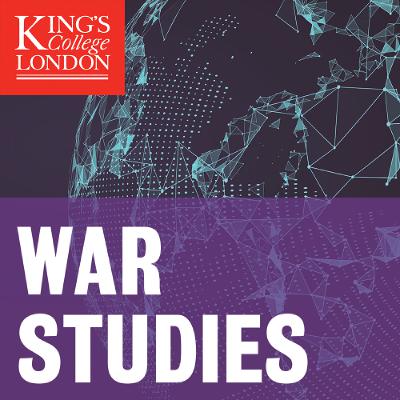
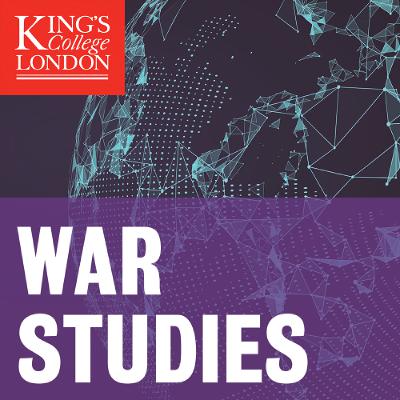
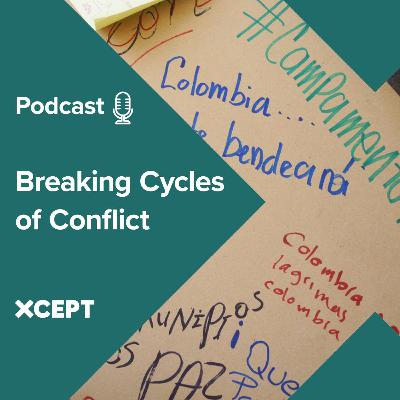
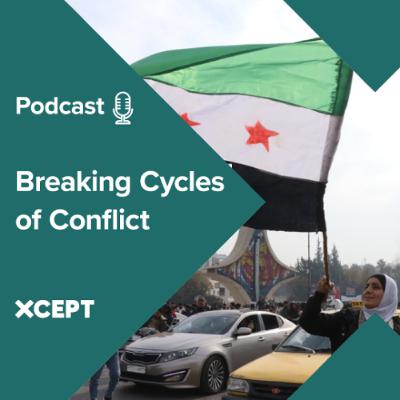
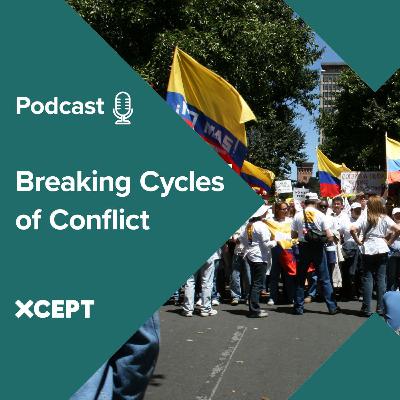
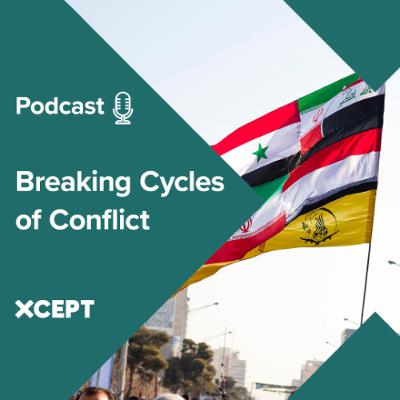








keynote speaker used trump style speech, very annoying.
boring, elementary snooze